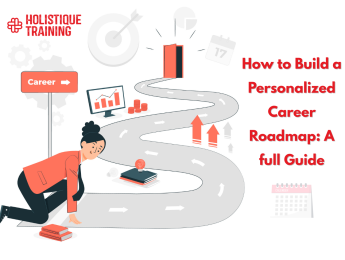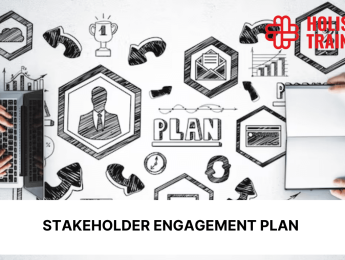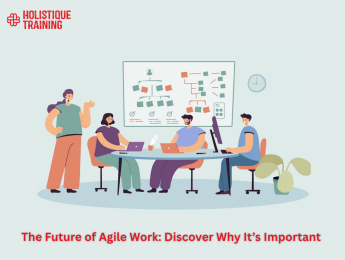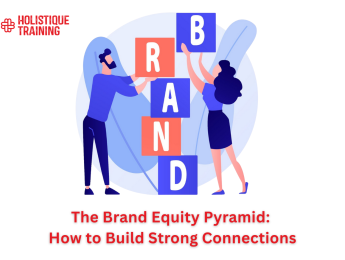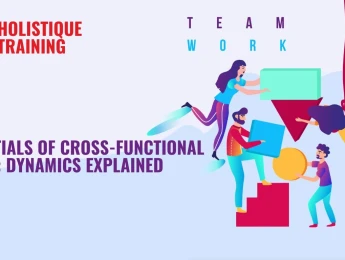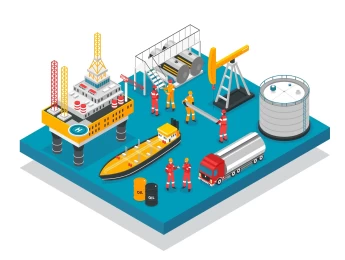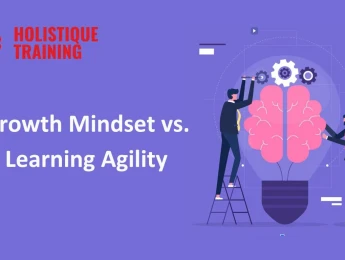- Table of Contents
- Introduction
- What is a Career Development Plan?
- What Does the Career Development Plan Include?
- Self-Assessment:
- Goal Setting:
- Action Plan:
- Timeline:
- Evaluation and Adjustment:
- Why is a Career Development Plan Important?
- Provides Direction and Focus:
- Enhances Motivation and Accountability:
- Facilitates Skill Development and Growth:
- Improves Employability and Career Advancement:
- Anticipates Challenges and Reduces Uncertainty:
- Aligns Career with Personal Values and Life Goals:
- Encourages Networking and Relationship Building:
- How to Create a Personalized Career Development Plan
- 1- Conduct a Self-Assessment:
- 2- Research Career Options:
- 3- Set Clear Goals:
- 4- Develop an Action Plan:
- 5- Create a Timeline:
- 6- Seek Feedback and Mentorship:
- 7- Regularly Review and Adjust Your Plan:
- The Importance of Mentorship in Building a Personalized Career Roadmap
- Guidance and Expertise:
- Personalized Feedback and Support:
- Networking Opportunities:
- Role Models and Inspiration:
- Accountability and Motivation:
- Perspective and Insight:
- Emotional Support and Encouragement:
- Long-Term Relationship and Growth:
- Career Development Plan Template
- Self-Assessment
- Career Goals
- Action Plan
- Timeline
- Evaluation and Adjustment
- Conclusion
Introduction
Crafting a successful career is akin to embarking on a long and rewarding journey. It requires careful planning, strategic thinking, and a commitment to continuous learning and growth. A personalized career development plan serves as a roadmap for this journey, guiding you towards your professional aspirations while adapting to your evolving interests and the dynamic job market. This blog post will delve into the essence of a career development plan, its components, the significance of having one, and how to create a personalized plan that aligns with your unique goals. We'll also explore the role of mentorship in career planning, discuss the concept of an EY badge, and provide a template to help you get started.
What is a Career Development Plan?
A career development plan is a structured approach to identifying and achieving your career goals. It involves assessing your current skills and experiences, setting short-term and long-term objectives, and outlining the steps needed to reach those objectives. This plan acts as a personalized strategy for professional growth, helping you navigate your career path with clarity and purpose.
At its core, a career development plan is not just about moving up the corporate ladder. It's about understanding your passions, strengths, and the areas you wish to develop. It's a holistic approach that considers your personal and professional life, ensuring that your career aligns with your values and life goals.
What Does the Career Development Plan Include?
A career development plan is a comprehensive framework designed to guide individuals through their professional journey. It encompasses several critical components, each serving a distinct purpose in helping you achieve your career aspirations. Here's a detailed breakdown of what a complete career development plan should include:
Self-Assessment:
The first step in any career development plan is a thorough self-assessment. This involves introspection and evaluation of your skills, interests, values, and personality traits. Understanding these elements is crucial as they form the foundation of your career plan. Tools such as SWOT analysis (Strengths, Weaknesses, Opportunities, Threats) can be particularly useful during this stage. Strengths are your inherent capabilities and skills that you excel at, while weaknesses are areas where you might need improvement. Opportunities refer to external factors that could benefit your career, and threats are potential challenges you may face. Additionally, personality assessments like theMyers-Briggs Type Indicator or theHolland Code can provide insights into your personal preferences and how they might influence your career choices.
Goal Setting:
Setting clear and achievable goals is a cornerstone of effective career planning. These goals should be both short-term (1-2 years) and long-term (3-5 years), providing a roadmap for immediate actions and future aspirations. The SMART criteria—Specific, Measurable, Achievable, Relevant, and Time-bound—are essential for ensuring that your goals are well-defined and attainable. For example, a short-term goal might be to acquire a specific skill or certification, while a long-term goal could involve reaching a particular position within your industry or transitioning to a new field.
Action Plan:
Once your goals are set, the next step is to develop a detailed action plan. This plan outlines the specific steps needed to achieve your goals, serving as a blueprint for your career progression. It includes identifying the skills you need to develop, the experiences you need to gain, and the resources required to support your journey. This might involve pursuing further education, attending workshops, gaining certifications, or seeking out new job experiences. Networking is also a crucial element of the action plan, as building connections within your industry can open doors to new opportunities and provide valuable insights.
Timeline:
A realistic timeline is essential for maintaining momentum and accountability in your career development plan. It helps you prioritize tasks and manage your time effectively, ensuring steady progress towards your goals. Break down your action plan into manageable milestones, each with specific deadlines. This not only keeps you on track but also allows you to celebrate small victories along the way, boosting your motivation and confidence.
Evaluation and Adjustment:
Career development is an ongoing process that requires regular evaluation and adjustment. As you progress, it's important to periodically review your plan to assess your achievements and challenges. This enables you to make informed decisions about any changes needed to stay aligned with your goals. Whether it's adapting to new interests, responding to changes in the job market, or addressing unexpected obstacles, flexibility is key to ensuring your career development plan remains relevant and effective. Regular evaluations also provide an opportunity to reflect on your growth and reassess your goals, ensuring they continue to resonate with your evolving aspirations.
By integrating these components into your career development plan, you create a structured yet flexible framework that supports your professional growth. This plan not only guides you towards your career objectives but also empowers you to take control of your career path, adapting to changes and seizing opportunities as they arise.
Why is a Career Development Plan Important?
A career development plan is a vital tool for anyone looking to navigate their professional journey with clarity and purpose. It serves multiple functions that contribute significantly to personal and professional growth. Here's why having a career development plan is so crucial:
Provides Direction and Focus:
One of the primary benefits of a career development plan is that it provides a clear sense of direction. In the absence of a plan, career paths can seem ambiguous and overwhelming. A well-structured plan helps you identify where you want to go and how to get there, allowing you to focus your energy and resources on achieving your objectives. This clarity can prevent you from feeling lost or stuck in your career, enabling you to make informed decisions about the opportunities you pursue.
Enhances Motivation and Accountability:
Setting specific, measurable goals within your career development plan can significantly enhance your motivation. When you know what you are working towards, it becomes easier to stay committed and driven. Moreover, having a written plan holds you accountable. You can track your progress, celebrate your achievements, and identify areas where you need to improve. This accountability can help maintain your momentum and ensure that you are consistently moving towards your goals.
Facilitates Skill Development and Growth:
A career development plan helps you identify the skills and competencies you need to develop to advance in your chosen field. By highlighting these areas, you can proactively seek out training, education, and experiences that will enhance your skill set. This not only prepares you for future roles but also makes you more adaptable and competitive in the job market. Continuous learning and development are critical in today’s rapidly changing work environment, and a career plan ensures you remain relevant and valuable. Moreover, as highlighted in the LinkedIn Workplace Learning Report 2024,70% of employees believe that learning enhances their sense of connection to their organization, underscoring the importance of ongoing development in fostering a deeper organizational bond.
Improves Employability and Career Advancement:
Employers value candidates who demonstrate foresight and commitment to their professional growth. A career development plan showcases your dedication to self-improvement and your strategic approach to career advancement. By actively working towards your goals and acquiring new skills, you position yourself as a proactive and ambitious candidate, which can lead to better job opportunities, promotions, and salary increases.
Anticipates Challenges and Reduces Uncertainty:
The professional world is full of uncertainties and challenges. A career development plan allows you to anticipate potential obstacles and devise strategies to overcome them. By preparing for these challenges, you can reduce stress and anxiety, making it easier to adapt and remain resilient in the face of setbacks. This foresight also enables you to take calculated risks that can lead to significant career advancements.
Aligns Career with Personal Values and Life Goals:
A career development plan ensures that your professional path aligns with your personal values and life goals. It encourages you to reflect on what truly matters to you and how your career can support your broader life aspirations. This alignment is crucial for achieving a sense of fulfillment and satisfaction in your work. When your career supports your personal values, you are more likely to experience a sense of purpose and contentment, leading to greater overall well-being.
Encourages Networking and Relationship Building:
As part of your career development plan, you will identify opportunities to build and expand your professional network. Networking is a powerful tool for career growth, providing access to new opportunities, insights, and collaborations. By fostering relationships with mentors, peers, and industry leaders, you can gain valuable guidance and support that can accelerate your career progression.
In summary, a career development plan is not just a roadmap for professional success; it is a comprehensive strategy for achieving personal fulfillment and growth. By providing direction, enhancing motivation, facilitating skill development, and aligning your career with your values, a career development plan empowers you to take control of your professional journey and create a fulfilling and successful career.
How to Create a Personalized Career Development Plan
Creating a personalized career development plan is a thoughtful process that involves introspection, research, goal-setting, and strategic planning. This plan serves as your roadmap, guiding you through the complexities of your career journey while ensuring alignment with your personal aspirations and values. Here's a detailed guide on how to craft a personalized career development plan:
1- Conduct a Self-Assessment:
Begin by reflecting on your interests, values, skills, and personality traits. This self-assessment is crucial for understanding what drives you and what you excel at. Consider using personality assessments like the Myers-Briggs Type Indicator or the CliftonStrengths to gain deeper insights into your strengths and preferences. Additionally, perform a SWOT analysis to identify your strengths, weaknesses, opportunities, and threats. This will help you pinpoint areas for improvement and leverage your strengths effectively.
2- Research Career Options:
Explore various career paths that align with your self-assessment. Research industries and roles that interest you, and consider factors such as job market trends, growth potential, and the skills required. Use resources like LinkedIn, industry reports, and informational interviews to gather insights into potential career trajectories. This research will help you identify viable options and make informed decisions about your career direction.
3- Set Clear Goals:
Define what success looks like for you by setting clear, achievable goals. These should include both short-term (1-2 years) and long-term (3-5 years) objectives. Ensure your goals are SMART—Specific, Measurable, Achievable, Relevant, and Time-bound. For example, a short-term goal might be to complete a certification course, while a long-term goal could involve transitioning to a leadership role within your industry. Clearly defined goals provide focus and motivation, helping you prioritize your efforts effectively.
4- Develop an Action Plan:
Create a detailed action plan outlining the steps needed to achieve your goals. This plan should include acquiring new skills, gaining relevant experiences, and seeking opportunities for growth. Consider the education,training, or certifications you might need, and identify networking opportunities that can expand your professional connections. Break down your action plan into specific tasks and milestones, making it easier to track your progress and stay motivated.
5- Create a Timeline:
Establish a realistic timeline for achieving your goals. A timeline helps you manage your time effectively and ensures steady progress towards your objectives. Break your action plan into manageable milestones, each with specific deadlines. This not only keeps you accountable but also allows you to celebrate small victories along the way, boosting your confidence and motivation.
6- Seek Feedback and Mentorship:
Engage with mentors or career coaches who can provide guidance and constructive feedback. Mentors can offer valuable insights, share experiences, and help you navigate the complexities of your career path. They can also expand your professional network, introducing you to opportunities and connections that can accelerate your career growth. Look for mentors whose career paths align with your aspirations and who demonstrate qualities and values you admire.
7- Regularly Review and Adjust Your Plan:
Career development is an ongoing process that requires regular evaluation and adjustment. Periodically review your plan to assess your achievements and challenges. This enables you to make informed decisions about any changes needed to stay aligned with your goals. Whether it's adapting to new interests, responding to changes in the job market, or addressing unexpected obstacles, flexibility is key to ensuring your career development plan remains relevant and effective. Regular evaluations also provide an opportunity to reflect on your growth and reassess your goals, ensuring they continue to resonate with your evolving aspirations.
By following these steps, you can create a personalized career development plan that supports your professional growth and aligns with your personal values and aspirations. This plan not only guides you towards your career objectives but also empowers you to take control of your career path, adapting to changes and seizing opportunities as they arise.
Below is a table that outlines challenges of creating a personalized career development plan and ways to address them:
Challenge | How to Address It |
Identifying Clear Goals | Conduct self-assessment and seek feedback from mentors or colleagues |
Lack of Resources | Explore free online courses and utilize company-provided training programs |
Staying Motivated | Set small milestones and reward achievements to maintain momentum |
Balancing Time Commitments | Prioritize tasks and create a realistic schedule for learning activities |
Adapting to Industry Changes | Stay informed about trends and adjust goals regularly to remain relevant |
The Importance of Mentorship in Building a Personalized Career Roadmap
Mentorship is a crucial element in the development of a personalized career roadmap. It provides guidance, support, and insights that can significantly enhance your professional growth and success. Here’s a detailed exploration of why mentorship is so important in building a career roadmap:
Guidance and Expertise:
Mentors bring a wealth of experience and knowledge to the table. They have often navigated the very challenges you might face and can offer practical advice on how to overcome them. This guidance can help you avoid common pitfalls and make informed decisions about your career path. By sharing their expertise, mentors can provide clarity and direction, helping you refine your career goals and strategies.
Personalized Feedback and Support:
A mentor can provide personalized feedback on your strengths and areas for improvement. This constructive criticism is invaluable for personal and professional development. Mentors offer a safe space to discuss your career aspirations, challenges, and uncertainties, providing support and encouragement as you navigate your career journey. This support can boost your confidence and motivate you to pursue your goals with greater determination.
Networking Opportunities:
Mentors often have extensive professional networks and can introduce you to valuable contacts within your industry. These connections can open doors to new opportunities, collaborations, and insights that can accelerate your career growth. Networking through a mentor can also provide you with access to industry events, conferences, and workshops, further expanding your professional circle and exposure.
Role Models and Inspiration:
Mentors serve as role models, demonstrating the qualities and behaviors necessary for success in your field. Observing their approach to challenges,decision-making, and leadership can inspire you to develop similar traits. A mentor’s success story can motivate you to set ambitious goals and pursue them with confidence, knowing that you have a supportive figure to guide you along the way.
Accountability and Motivation:
Having a mentor can increase youraccountability, as they often help you set realistic goals and timelines. Regular check-ins with a mentor can ensure that you stay on track and make consistent progress towards your objectives. This accountability can enhance your motivation and commitment, driving you to achieve your career aspirations.
Perspective and Insight:
Mentors can offer a fresh perspective on your career challenges and decisions. They can help you see situations from different angles and consider alternative solutions. This broadened perspective can lead to more innovative thinking and better decision-making. Mentors can also provide insights into industry trends and future opportunities, helping you stay ahead in a competitive job market.
Emotional Support and Encouragement:
The journey to achieving your career goals can be challenging and sometimes overwhelming. Mentors can provide emotional support during difficult times, offering reassurance and encouragement when you need it most. This support can help you maintain resilience and perseverance, even in the face of setbacks or failures.
Long-Term Relationship and Growth:
Mentorship is often a long-term relationship that evolves as you progress in your career. As you grow, your mentor can continue to provide valuable insights and advice, adapting their guidance to your changing needs and goals. This ongoing relationship can be a source of continuous learning and development, enriching your career journey over time.
In summary, mentorship is a powerful tool in building a personalized career roadmap. It provides the guidance, support, and resources needed to navigate the complexities of your professional journey. By leveraging the experience and insights of a mentor, you can enhance your career development, achieve your goals more effectively, and ultimately build a fulfilling and successful career.
Career Development Plan Template
To help you get started, here is a simple template for creating your personalized career development plan:
Goal | Action Steps | Timeline |
Enhance Technical Skills | Enroll in an advanced coding course and complete online certifications | Within 6 months |
Improve Leadership Skills | Attend leadership workshops and seek mentorship from a senior manager | Over the next year |
Expand Professional Network | Join industry-specific groups and attend two networking events per quarter | Ongoing |
Gain Industry Knowledge | Subscribe to industry journals and participate in webinars monthly | Monthly |
Achieve Role Advancement | Complete required certifications and apply for internal promotion opportunities | In 18 months |
Here’s another way:
Self-Assessment
- Strengths:
- Weaknesses:
- Interests:
- Values:
Career Goals
- Short-Term Goals (1-2 years):
- Long-Term Goals (3-5 years):
Action Plan
- Skills to Develop:
- Certifications/Training Needed:
- Networking Opportunities:
- Mentorship:
Timeline
- Milestone 1:
- Milestone 2:
- Milestone 3:
Evaluation and Adjustment
- Review Date 1:
- Review Date 2:
- Adjustments Needed:
Conclusion
Building a personalized career development plan is a powerful tool for navigating your professional journey with intention and purpose. It provides clarity, direction, and motivation, helping you align your career with your passions and values. By regularly reviewing and adjusting your plan, seeking mentorship, and embracing opportunities for learning and growth, you can build a fulfilling and successful career. Remember, your career is a journey, not a destination, and a well-crafted plan can make that journey more rewarding and enriching.


